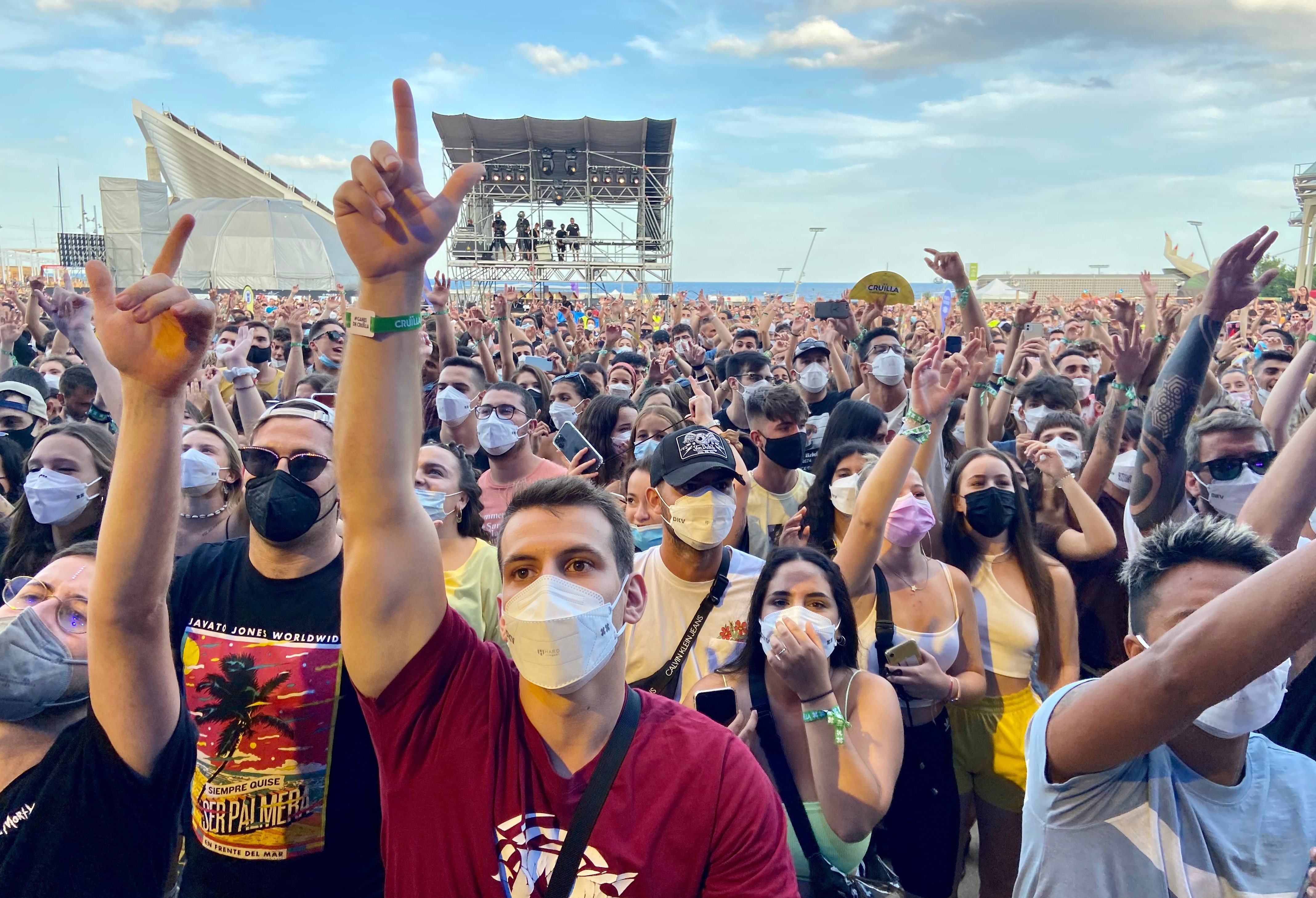The Catalan health service has presented the results of its follow-up of the Covid cases detected among those who attended the Vida, Cruïlla and Canet Rock festivals, all held in Catalonia in early July. When these events were authorized, it was understood that there would be a certain number of infections among the attendees, but the reality went beyond the expectations. Among those who attended there were at least 842 infections more than expected during the 14 days following the three large musical events. The health service had calculated that a figure of 1,437 would be infected, but in reality there were 2,279, almost twice as many.
The secretary of public health, Carmen Cabezas, affirmed that the festivals played "a role" in the spread of the virus during Catalonia's fifth wave - which reached its height in July - but she states that they are not considered as superspreader events. Cabezas recalled that during the same period, a large number of end-of-year parties and other events related to the relaxation of the spring 2021 restrictions were held, which also helped to fuel the current wave.
The festivals were controversial for the possible risk they represented from the moment their celebration was announced, and criticism soared after the first images arrived of people without masks or social distancing. For some time, the Catalan minister of health Josep Maria Argimon has acknowledged that they were "a mistake", but not because of the contagion data that they might have yielded - which was not available at that time - but because they helped send a “contradictory message” to the public.
Around 27,000 people attended the three-day Vida festival from July 1st to 3rd, at Vilanova i la Geltru, south-west of Barcelona. Meanwhile, Canet Rock took place on July 3rd as a one day event at Canet de Mar in the Maresme, with an audience of 22,000. The following weekend, Cruïlla attracted 50,000 people over three days, between July 8th and 10th, to its outdoor urban venue in Barcelona's Parc del Fòrum.
Theory and practice
Cabezas explained that the Covid protection system used for the festivals was developed based on the experiences of trial concerts held in the previous months in Barcelona's Sala Apol·lo and the Palau Sant Jordi, attended by volunteers as part of rigorous scientific experiments to test Covid propagation when precautions were taken, including antigen test screening and masking requirements. But in those cases, it was possible to exhaustively monitor a relatively small number of people in easily controllable spaces. In other words, they were experiments in ideal conditions, but the lessons learned, said the public health secretary, were not easily applicable to "reality."
Carmen Cabezas lamented the difference between theory and practice in the execution of Covid protocols at this type of event, a difference that was reflected in the number of extra infections. The real-life experience was that, after hours of live music, many people dispensed with masks, reduced interpersonal distances, and ignored other health measures, which, as she noted were serious failings but could have even been anticipated given the context. More shocking, though, was the fact that a small number of already-infected people attended the festivals ignoring the recommended quarantines. "We noted that a small group of people attended the music festivals when they were Covid positive. That leads us to emphasize the importance of complying with quarantine requirements," stressed Cabezas. This situation occurred precisely because the antigen tests, used by the screenings, are not extremely reliable and she warned people against relying on the "false sense of security" that they generate.
The situation registered at the festivals led the public health secretary to affirm that "protection measures need to be rigorous at public events and maximum capacities and distancing norms must be respected".
Main image: Part of the crowd at the Cruïlla Festival / ACN

